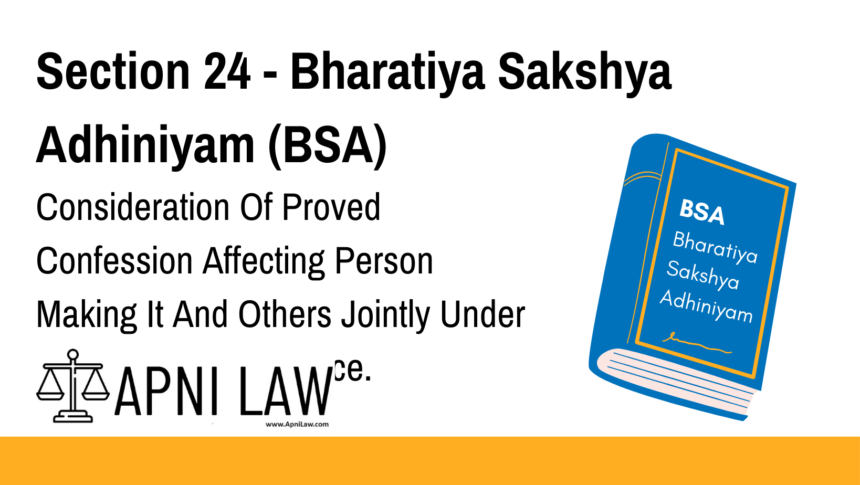Code
When more persons than one are being tried jointly for the same offence, and a confession made by one of such persons affecting himself and some other of such persons is proved, the Court may take into consideration such confession as against such other person as well as against the person who makes such confession.
Explanation I:
The term “offence” in this section includes:
- Abetment of the offence
- Attempt to commit the offence
Explanation II:
A trial involving multiple accused will still be considered a “joint trial” for this section, even if one accused is absent due to absconding or non-compliance with a proclamation issued under Section 84 of the Bharatiya Nagarik Suraksha Sanhita, 2023.
Explanation
This section allows the confession of one accused to be considered against others—only if:
They are being tried jointly for the same offence,
The confession implicates both the maker and the co-accused.
Important:
- Such a confession is not “proof” by itself against the co-accused.
- It can only be used as additional corroborative material, not the sole basis for conviction.
Illustrations
(a) A and B are jointly tried for the murder of C. It is proved that A said,
“B and I murdered C.”
The court may consider this confession against both A and B.
(b) A is tried for the murder of C. Evidence shows that B (not on trial with A) said,
“A and I murdered C.”
This confession cannot be considered against A because B is not being jointly tried.
Key Concepts
- Confession by one accused can affect co-accused only during a joint trial.
- It applies to main offences, attempts, and abetments.
- Confession of an absconding accused may still be relevant in joint trials (as per Explanation II).
- Must be used cautiously—cannot replace direct evidence against the co-accused.







